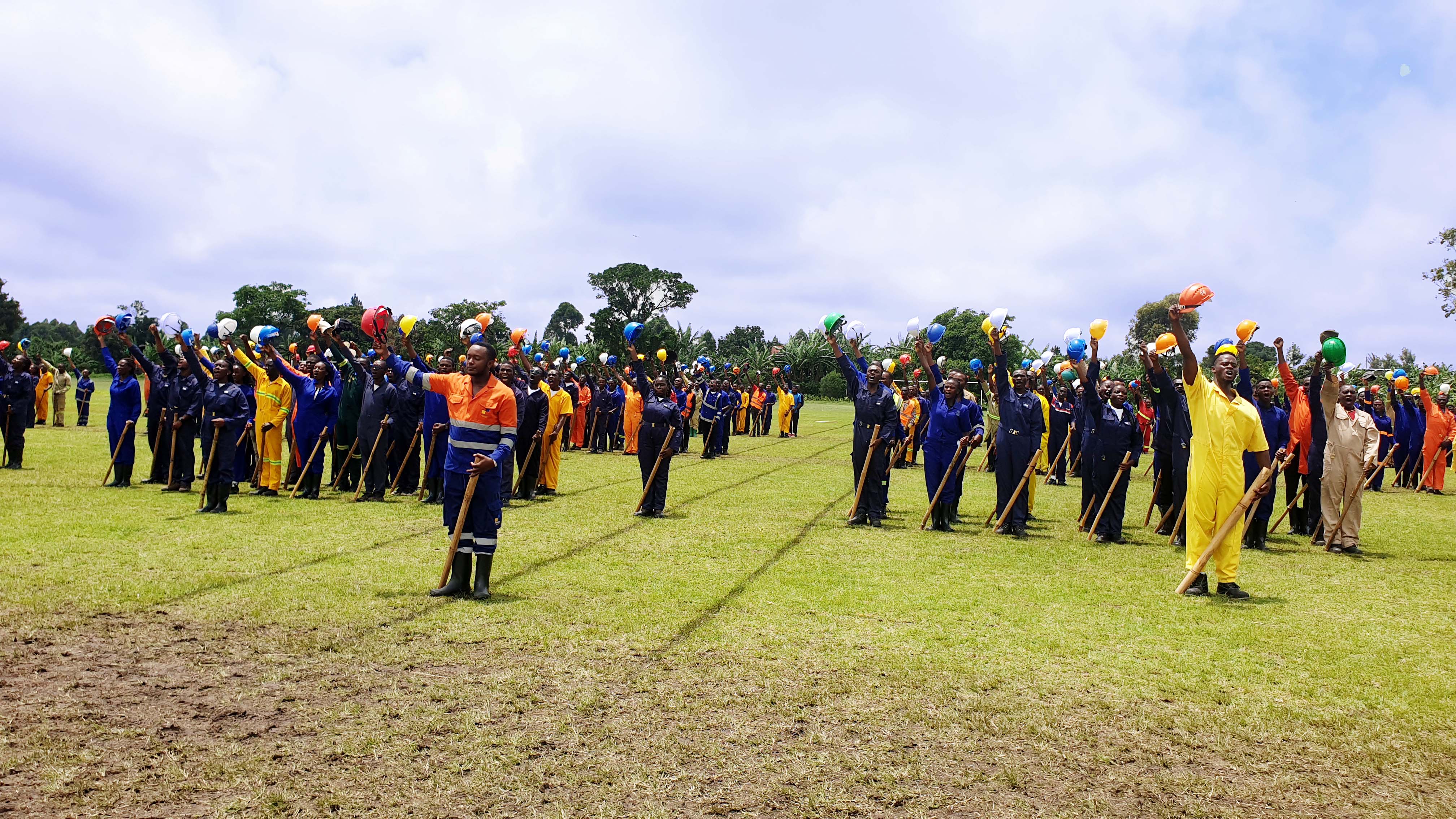“Strengthening National Pride”, Patriotism Training in Uganda's five Technical Colleges. 10th October, 2023
Patriotism is a core value that binds the citizens of any nation together, fostering a sense of unity, love, and commitment towards the homeland. In Uganda, a nation with a rich cultural heritage and diverse population, the government has taken a significant step to instill patriotism by introducing specialized training programs in five technical colleges. This article explores the importance and impact of patriotism training in these institutions.
The Significance of Patriotism Training:
Patriotism training plays a crucial role in shaping the future of any nation, and Uganda is no exception. In a rapidly changing world, it is essential to equip young Ugandans with the knowledge, values, and skills that will enable them to contribute positively to their communities and the nation as a whole.
The five Uganda technical colleges in Uganda, namely [UTC Kichwamba in fort portal, UTC Bushenyi, UTC Lira, UTC Elgon and UTC Kyema Hoima district ], have been chosen as platforms to deliver this specialized training. Here's why this initiative is significant:
1. Holistic Development: Patriotism training in technical colleges extends beyond the classroom. It encompasses not only the understanding of Uganda's history, culture, and values but also practical skills development and community engagement.
2. Fostering Unity: Uganda's diversity is one of its strengths, and the training emphasizes the importance of unity in diversity. It encourages students to appreciate and respect the various cultures and backgrounds present in the country.
3. Responsible Citizenship: Patriotism training instills a sense of responsibility towards one's nation. It encourages students to actively participate in civic activities, contribute to community development, and take pride in their nation's achievements.
4. Cultural Preservation: Uganda is renowned for its rich cultural heritage. Patriotism training ensures that students appreciate and preserve their cultural traditions, helping to safeguard this heritage for future generations.
5. Global Competence: In an increasingly interconnected world, patriotism doesn't mean isolationism. It equips students with the knowledge and skills to engage in global affairs while still maintaining their commitment to Uganda.
IMPACT ON STUDENTS AND COMMUNITIES:
The introduction of patriotism training in technical colleges in Uganda has had a significant impact:
1. Empowered Youth: Students who have undergone this training are more confident and motivated to contribute to the development of their country. They see themselves as active agents of positive change.
2. Civic Engagement: Many students have actively participated in community service projects, demonstrating their commitment to making a difference at the grassroots level.
3. Enhanced Skills: The training doesn't just focus on patriotism; it also enhances students' technical skills, making them more employable and valuable assets to their communities.
4. Cultural Preservation: Uganda's cultural traditions are being preserved and celebrated more than ever, thanks to the emphasis on cultural heritage in patriotism training.
Mr. Rwabuhinga Richard LC5 of Kabalore district who passed out the students of UTC Kichwamba had this to say about this training.
“Patriotism, the love for one's country, is a sentiment that has the power to unite and inspire individuals and entire nations. In our beloved Uganda, where we are fortunate to be blessed with a rich cultural heritage, incredible diversity, and a promising future, nurturing patriotism is not just a choice; it is a responsibility we owe to our nation.
Today, I want to emphasize why this training is not just important but essential for the holistic development of our students and the prosperity of our country.
First and foremost, patriotism training instills a profound sense of belonging and pride in our students. It helps them understand that they are part of something much larger than themselves – a nation with a unique history, a vibrant culture, and a collective destiny. When students truly love their country, they become active, engaged citizens who are ready to contribute to its progress.
Through patriotism training, we are nurturing responsible citizens who understand that they have a role to play in shaping the destiny of Uganda. They learn that patriotism is not just about waving the national flag on special occasions; it's about making a difference in their communities, about standing up for justice and equality, and about being stewards of our environment and resources.”
Conclusion:
The introduction of patriotism training in Uganda's five technical colleges is a commendable effort to nurture responsible, patriotic, and culturally aware citizens. By instilling these values in the younger generation, Uganda is not only ensuring its continued growth and development but also fostering a sense of national pride that will endure for generations to come. The impact of this initiative extends beyond the classroom, positively influencing communities and the nation as a whole. Uganda's commitment to patriotism training is a testament to its dedication to building a strong, united, and prosperous future.
